Die Räuber


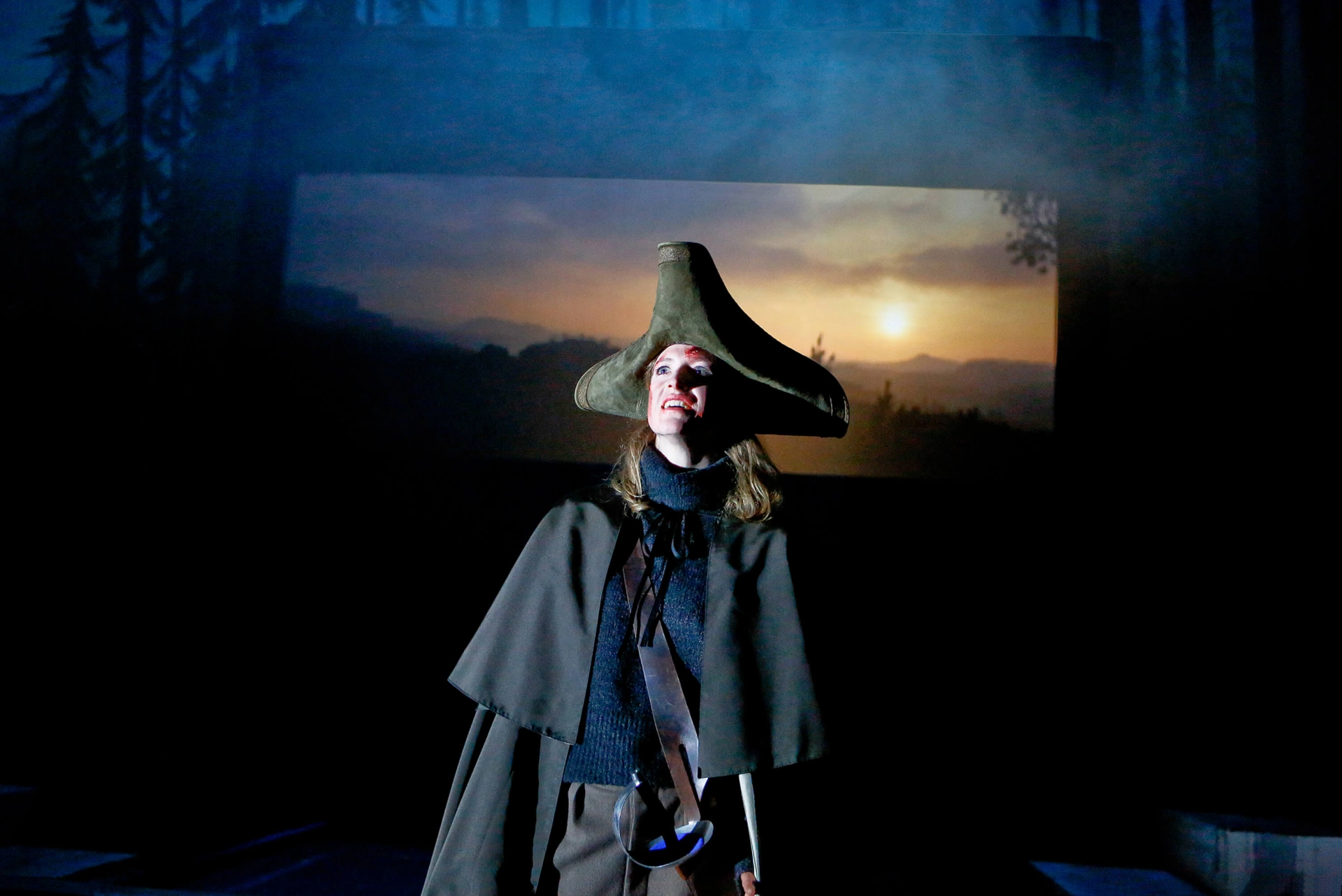
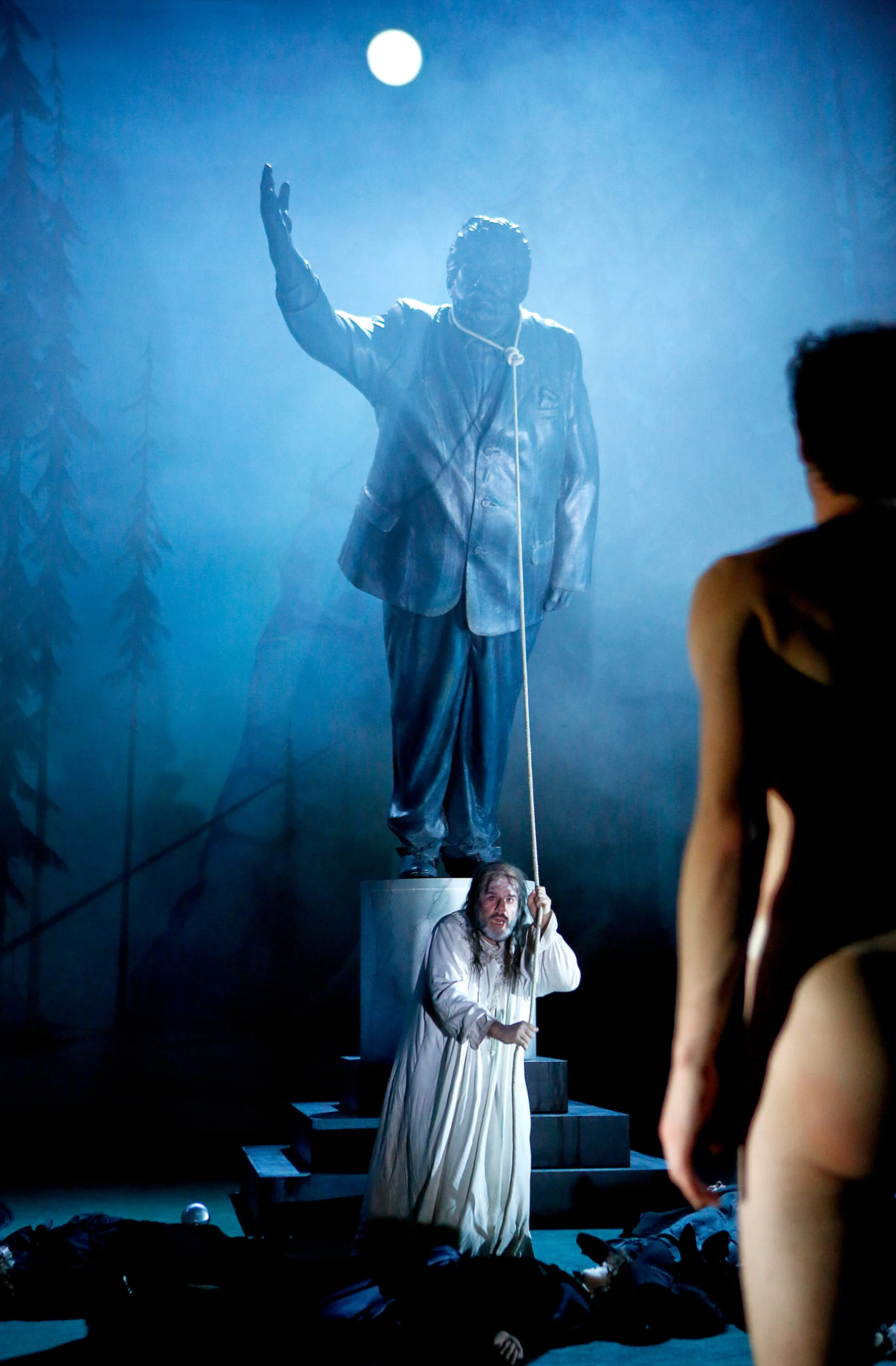


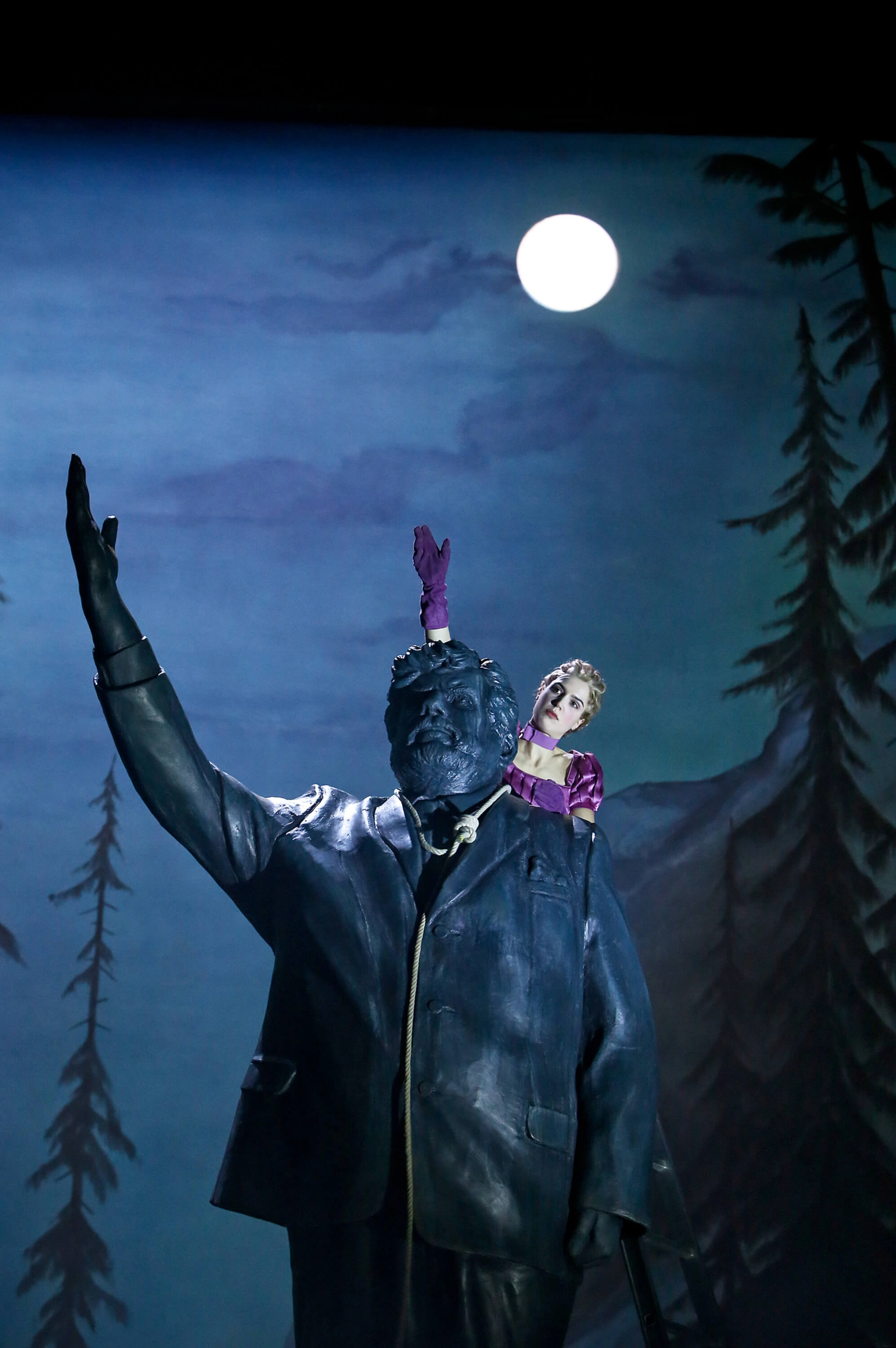
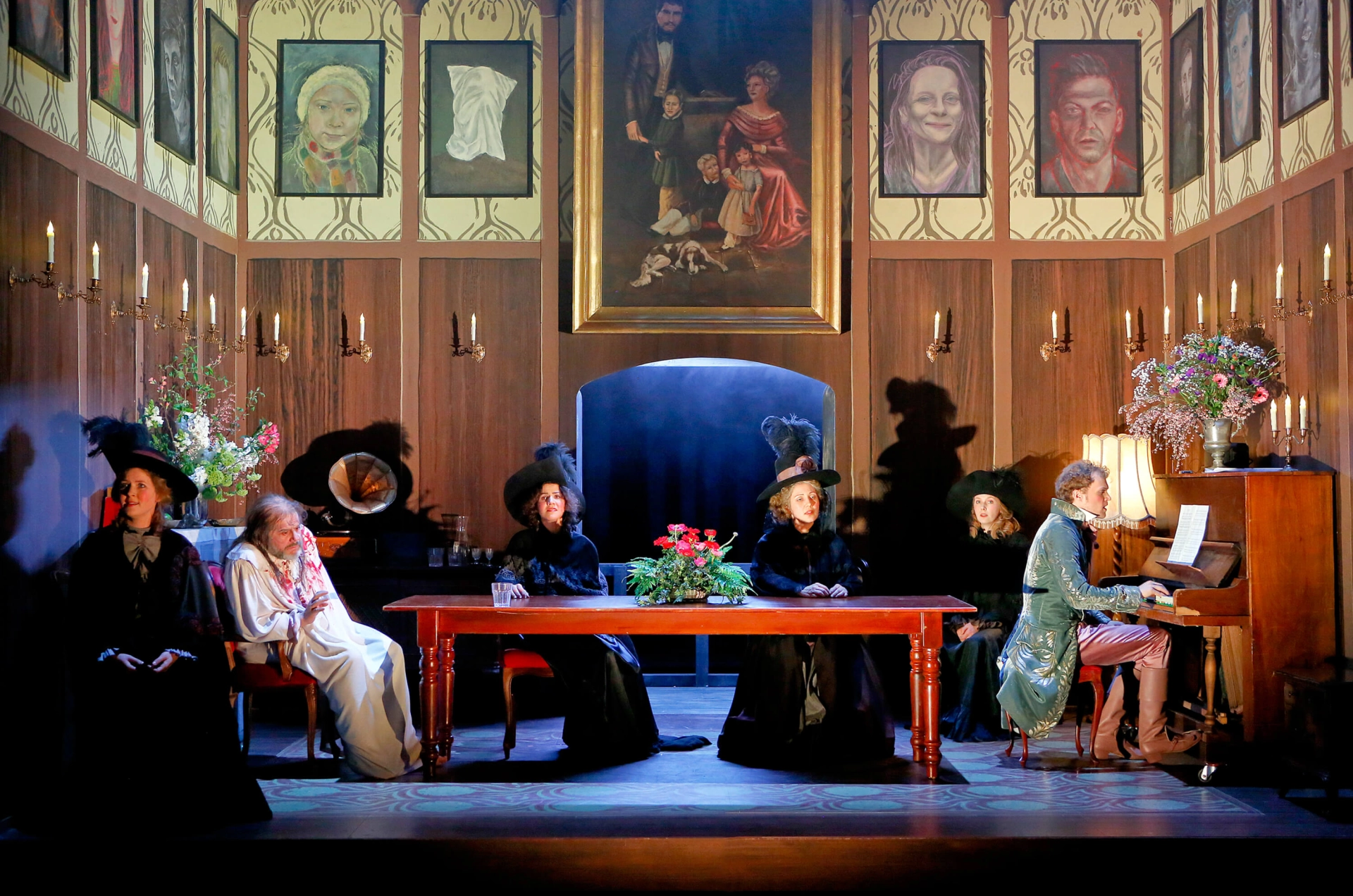
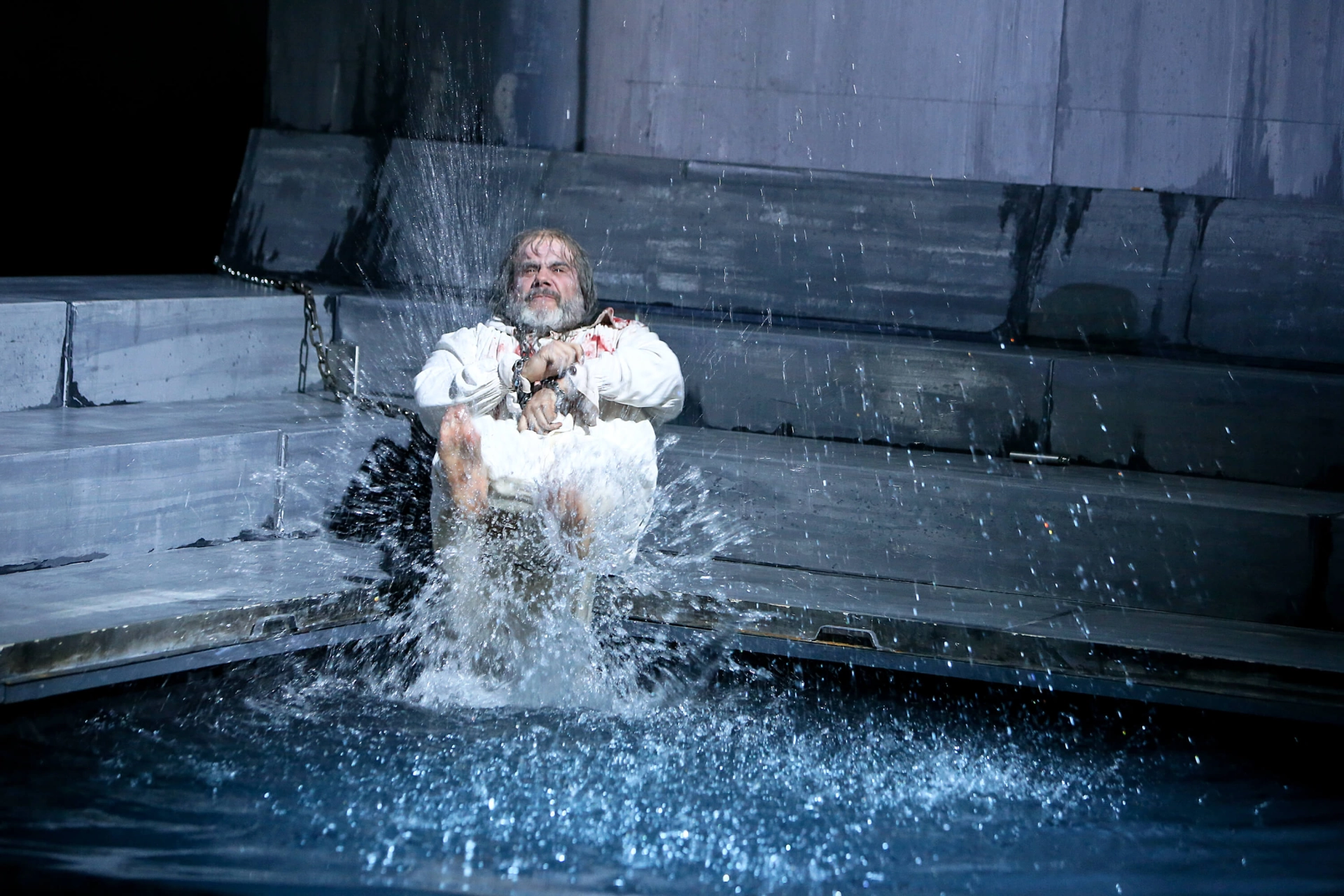
Team
Director, Stage design
Ersan Mondtag
Costumes
Josa Marx
Film direction / Editing
Florian Seufert
Music
Max Andrzejewski
Lighting design
Rainer Casper
Dramaturgy
Beate Heine
Collaborators stage design
Katrin Lehmacher, Christine Ruynat, Marcel Teske
Muscial collaborator / rehersal
Gerrit Netzlaff
Cast
Maximilian, Regierender Graf von Moor
Bruno Cathomas
Karl Moor
Lola Klamroth
Franz Moor
Sophia Burtscher
Amalia von Edelreich
Jonas Grundner-Culemann
Moritz Spiegelberg
Nikolay Sidorenko
Schweizer
Simon Kirsch
Razmann
Johannes Meier
Schufterle
Nicolas Lehni
Roller
Kate Strong
Kosinsky, Daniel, Schwarz
Elias Reichert
Hermann, Bastard von einem Edelmann
Ines Marie Westernströer
Pastor Moser
Thelma Buabeng
Singers
Taya Chernyshova / Thea Soti • Zola Mennenöh / Mascha Corman • Rebekka Ziegler / Marie Daniels
Schiller's great drama of freedom, written during the Sturm und Drang period and disturbing its contemporaries with its force, violence and destructive passions, poses the question, still explosive today, of when the unconditional will to freedom and idealism are perverted and turn into terror and destruction.
In DIE RÄUBER, Schiller creates a study of radicalisation by sharpening the claims of the Enlightenment and ultimately turning them into despotism, materialism and nihilism. Franz Moor, a rationalist and nihilistic misanthrope, wants to destroy his own father and thus the entire Christian world order. His brother Karl initially fights for humanist ideals, but loses all sense of proportion and becomes guilty of the deaths of innocent people.While Franz infamously plots against his brother and father at home, Karl goes into the woods to form a band of robbers. He rebels against his father's supposed rejection of him and travels the world robbing and murdering. After years of being a robber, Karl returns home. He recognises his brother's schemes and swears revenge. Franz, who has buried his father, is plagued by nightmares and feelings of guilt. When he sees his life threatened by the appearance of his brother Karl, he strangles himself. Bound by an oath of allegiance to the band of robbers, there is no way back for Karl either.Both revolt in their own way against the patriarchal and socio-political order, which has long since ceased to be powerful and instead gives birth to disorientated children. The weak father fails and is unable to give his sons any guidance. The playbill for the premiere gives an indication of this in the characterisation of the old Count von Moor: "Old Moor, an all too weak, yielding father, the cause of his children's ruin and misery."
Photo credit: Birgit Hupfeld
Time
15. March 2019 – 03. March 2020